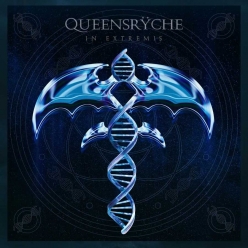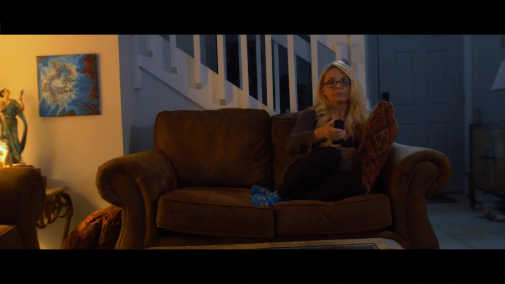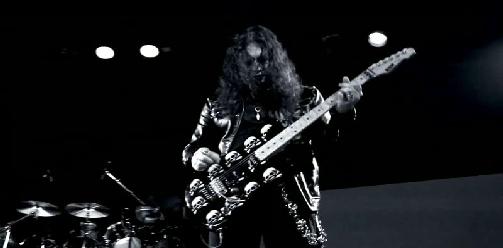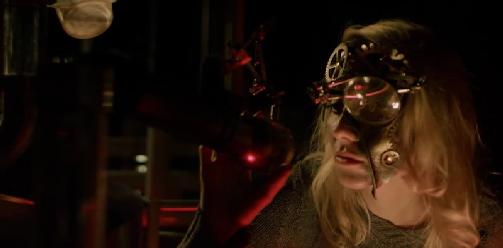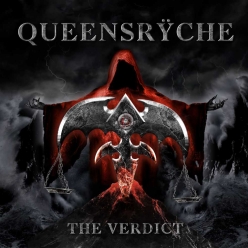Biography
In 1988, Queensrÿche released Operation: Mindcrime, a narrative concept album that proved a massive critical and commercial success. The album's story revolved around a junkie named Nikki, who is brainwashed into performing assassinations for an underground movement. Nikki is torn over his misplaced loyalty to the cause and his love for Mary, a reformed hooker-turned-nun (vocals by Pamela Moore), who gets in the way. The band's progressive metal style was fully developed on this album. The band toured through much of 1988 and 1989 with several bands, including Def Leppard, Guns N' Roses and Metallica. The album gained critical acclaim and achieved gold status.
The release of Empire (1990) brought Queensrÿche to the height of their commercial popularity. It peaked at No. 7 and sold more than three million copies in the United States, more than their previous four releases combined (it was also certified silver in the UK). The power ballad "Silent Lucidity", which featured an orchestra, became the band's first Top 10 single. While the socially conscious lyrics were retained (touching on topics such as gun control and the environment), the arrangements on Empire were more straightforward than the band's previous efforts.
The subsequent "Building Empires" tour was the first full-fledged tour to feature Queensrÿche as a headlining act (the band had previously headlined a tour in Japan in support of Operation: Mindcrime, and had headlined a handful of club and theater shows in the U.S. between 1984 and 1988). The group used its headlining status to perform Operation: Mindcrime in its entirety, as well as songs from Empire. The tour lasted 18 months, longer than any tour the band had undertaken before or has since. The tour also added a black page to the band's history, when during a show in a sports hall in Ichtegem, Belgium on November 20, 1990, a scuffle in the audience resulted in an American fan getting fatally stabbed in the chest. Tour manager Howard Ungerleider immediately stopped the show as the band was only playing the seventh song on the set list, "Roads to Madness". A live album, recorded May 10–12, 1991, was released later that year as Operation: Livecrime. The tour also included an MTV Unplugged appearance at Warner Hollywood Studios in Los Angeles on April 27, 1992.
After taking time off to deal with the burnout resulting from the tour and with other personal issues, the band released Promised Land in October 1994 (a companion CD-ROM, featuring a Promised Land-themed game and other interactive features, was released in March 1996). It was a dark and intensely personal album, reflecting the mental state of the band at the time. Although the album debuted at No. 3 and was eventually certified platinum, it was clearly not the commercial success Empire had been. As with many other heavy metal and hard rock acts, Queensrÿche's commercial fortunes waned with the surge in popularity of genres such as alternative rock and grunge (which coincidentally got its start in Seattle, of which Bellevue—where the band was formed—is a suburb).
Major changes (1997–98)Queensrÿche released their sixth full-length studio album, Hear in the Now Frontier, in March 1997, to mixed critical and fan reception. The album debuted at No. 19 but quickly vanished from the charts. The musical sound and style of the album was more basic and stripped down than anything the band had released to date, and some fans and critics pointed to the grunge musical style as being a major influence on the record. Despite the reaction, the singles "Sign of the Times" and "You" received substantial airplay.
Compounding the disappointing sales of the album were issues that plagued the band on the subsequent tour. Less than one month into the Hear in the Now Frontier tour, Tate became seriously ill and the band was forced to cancel concert dates for the first time. In an even bigger blow, the band's longtime label, EMI America Records, went bankrupt during the same period. Queensrÿche was forced to use its own money to finance the remaining two months of the tour. The band played a handful of December shows in South America because of contractual obligations, and it was during this time, late 1997, that founding member Chris DeGarmo announced he was leaving Queensrÿche. However, his departure was not announced to the public until January 24, 1998. Members of the band have later cited burnout and a desire to pursue interests outside of Queensrÿche as reasons for his departure. For example, Rockenfield has said: "He wanted to pursue other things. He felt like he had done what he wanted musically in his life, and wanted to move on." After leaving Queensrÿche, DeGarmo began a full-time career as a professional business jet pilot. His involvement with music has since been sporadic. He remains highly regarded in the eyes of Queensrÿche's fan base.
Continued experimentation (1998–2002)DeGarmo was replaced by guitarist and producer Kelly Gray. Gray's connections with Queensrÿche went back to the early '80s, when he was the guitarist for Myth, which was also the band Tate fronted prior to joining Queensrÿche. Gray had previously worked as a producer for bands such as Dokken and Candlebox. Queensrÿche recorded one studio album with Gray, Q2K from 1999, which was also the first album for their new label, Atlantic Records. Musically, Q2K bore little resemblance to the progressive metal of the band's past, and also displayed a similar stripped-down sound as Hear in the Now Frontier. Tate has described Q2K as a continuation of the experimentation of Hear in the Now Frontier. Declining popularity forced the band to tour in clubs and theaters, rather than in the larger arenas and outdoor amphitheaters where they played before. Following the Q2K tour, Rockenfield and Gray formed the side project Slave to the System with band members from Brother Cane and recorded a self-titled album.
After the release of a greatest hits collection in 2000, Queensrÿche embarked on another tour, this time in support of Iron Maiden. This enabled the band to play Madison Square Garden for the first time. Unhappy with the lack of support they felt they received from Atlantic Records, Queensrÿche moved to Sanctuary Records in 2001. In July of that year, the band performed a handful of dates at the Moore Theatre in Seattle, Washington. The shows were recorded and released in September 2001 as Live Evolution, the band's second live album. In 2001 and 2002, Tate worked on his self-titled first solo album, which was released on June 25, 2002.
Gray was fired from the band in May 2002, which according to Rockenfield was "because of personal abuse habits and ongoing problems".
Tribe (2002–04)The band entered the studio as a quartet in the spring of 2003 to record their eighth full-length album, while a compilation of greatest hits was released as part of the Classic Masters series on March 9, 2003. In April, they announced they had been joined by Chris DeGarmo, although his future status with the band was uncertain. In July, Queensrÿche released its first and only album of new material on the Sanctuary label, Tribe. DeGarmo, who played on and co-wrote four songs, neither officially rejoined the band nor took part in the supporting tour.
Queensrÿche found a replacement for Gray in Mike Stone, who had previously worked on Tate's solo album. Stone accompanied the band on the Tribe tour as second guitarist to Wilton's lead, though he never was a full member of the band. In June 2003, Queensrÿche launched a co-headlining tour featuring another progressive metal band, Dream Theater. The two bands alternated the opening and closing slots, and ended the shows by playing a handful of songs together. Fates Warning was the special guest for the tour. A recording from this tour was released to CD and DVD as The Art of Live, which included two covers performed with Dream Theater.
Following this tour, Lars Sorensen was dismissed, and Geoff Tate's wife Susan was promoted to band manager, after having worked as an assistant manager for the band since 2001. In this period, Wilton spent time recording the self-titled album of his side project Soulbender.
Operation: Mindcrime II (2004–07)In July 2004, Queensrÿche announced its plans to record a follow-up to 1988's Operation: Mindcrime. To generate fan interest in the upcoming album, the band hit the road in the fall of 2004 with the "An Evening With Queensrÿche" tour. The tour opened with a shortened greatest hits set, followed by a revised production of Operation: Mindcrime with live actors and video; Pamela Moore reprised her role as Sister Mary. The band played a pre-recorded version of "Hostage," a track from the upcoming album, through the PA as an encore after the end of their set. The second leg of the tour began in early 2005. Before embarking on a third leg in the fall of 2005, Queensrÿche toured with Judas Priest across North America, playing an hour-long set consisting mostly of the band's older works and one song from the soon-to-be released sequel, entitled "I'm American".
Operation: Mindcrime II was released internationally on March 31, 2006. The album was Queensrÿche's first for their new label, Rhino Entertainment, to which it signed in 2005. Ronnie James Dio provided the vocals for Dr. X, the villain. The album debuted at No. 14, the highest chart position for a Queensrÿche album since 1997. The group embarked on a headlining tour in support of the album, joined by Pamela Moore in her role as Sister Mary. The tour featured performances of both Mindcrime albums in their entirety. Dio appeared at the Gibson Amphitheatre show in Universal City, California to perform his vocals as Dr. X on "The Chase", and was shown on a video screen at the other shows. Dio's appearance was recorded, and included as an extra on the 2007 DVD release Mindcrime at the Moore.
Declining popularity (2007–12)On August 9, 2007, the band announced that it would release a new greatest hits album, entitled Sign of the Times. The album was released on August 28, 2007, and a special collector's edition featured a bonus disc including various demos and a new song, "Justified", featuring Chris DeGarmo on guitar. On November 13, 2007, the band released an album of covers entitled Take Cover. The album contains covers of songs by Queen, U2, The Police, Black Sabbath, Peter Gabriel, and Pink Floyd, and was the band's second release for Rhino Records.
On February 3, 2009, Stone announced the end of his association with Queensrÿche to focus on his side project Speed-X, although court declarations later revealed Geoff and Susan Tate fired him for "making too many grand demands", without discussing their decision with the other band members.
Wilton recorded both lead and rhythm guitar on the band's eleventh studio album, American Soldier, released on March 31, 2009. The concept album regards war from the perspective of those on the front lines of American wars from World War II through to the present, especially the Iraq War. Parker Lundgren (formerly of The Nihilists and Sledgeback, who also played on Tate's solo tour and was in a relationship with Tate's stepdaughter Miranda) replaced Stone on the ensuing tour.
In late 2009 and early 2010, the band toured for The Queensrÿche Cabaret.
In November 2010, Queensrÿche played several shows for U.S. troops stationed in Iraq. While at a U.S. military position, explosive shells began falling on the base as the result of a bomb attack. Contrary to some news reports stating that some band members were injured, Tate has said in several interviews that he was misquoted and none of the band members suffered any injuries.
The band's twelfth studio album, Dedicated to Chaos, was released on June 28, 2011 on Roadrunner/Loud & Proud Records, to which the band had signed on August 25, 2010. The album was a drastic departure from the band's previous efforts, featuring a greater emphasis on the bass and drums, and with minimal guitar work. The album was released to mixed reviews and was the lowest charting full-length album for the band in its history.
According to Tate, Queensrÿche was already writing new material for a follow-up to Dedicated to Chaos as of June 2011, and were planning to return to the studio in late 2012 to re-record Operation: Mindcrime, releasing it in early 2013 for its 25th anniversary.
Rising West and split with Geoff Tate (2012–2014)In the period 2012 to 2014 the four members of the band had a confrontation about management and merchandise that resulted in a split and a legal tussle over the name. For a period both camps performed under the band name until a settlement was reached. For a short period Rockenfield, Wilton and Jackson performed as Rising West together with a new vocalist Todd La Torre. Guitarist Parker Lundgren was not part of these legal proceedings but continued to work with Rockenfield, Wilton and Jackson. In 2014, the latter obtained the legal rights to the name of the band, while Tate received the rights to the concept behind Operation:Mindcrime.
Confrontation Drummer Scott Rockenfield and singer Geoff Tate performing with Queensrÿche in São Paulo, Brazil on April 14, 2012. Tate would repeatedly spit at Rockenfield during this show.In a band meeting on April 12, 2012, which Tate did not attend, the band fired both Tate's stepdaughter, Miranda, from running the fan club, and his wife Susan, their band manager since 2005. According to Wilton, the reasons were that "the last 3 years, basically it just came to a point that we didn’t have a voice in the band anymore. It was all run by the singer and his manager, the wife." On April 14, 2012, before the soundcheck for a show in São Paulo, Brazil, Tate had an argument with the other members about the firing of his family. This confrontation became heated, leading to Tate retaliating by throwing over the drum kit, throwing several punches and physically assaulting and spitting on Rockenfield and Wilton. Over the course of the band's next three shows, Wilton, Rockenfield, and Jackson felt that Tate continued to misbehave and they came "to the conclusion that they can no longer work or perform with Mr. Tate." They called a band meeting on June 5 (some sources say June 6). Tate withdrew from this conference call, after which the other band members voted to "onsider Geoff Tate expelled from the band" and "continue to use the Queensrÿche name with a new lead singer".
Rising West Queensrÿche with Todd La Torre in 2012.Meanwhile, as Tate was working on his solo album Kings & Thieves and an ensuing tour, Queensrÿche's other band members started the side project Rising West. Wilton explained that: "Originally this was deemed as a side project, because we were told by our management that we were not going to do anything for the next year so hey, we have to survive." The project would initially be called "West", which stood for the four members of the band: "Wilton, Eddie, Scott and Todd", but was later renamed "Rising West" at the suggestion of Jackson. The band was enthusiastic about this name, because the project felt like something fresh for them, it additionally refers to the band members living on the West Coast, it is easier to pronounce, and because Lundgren would later also be a part of the band.
Still in search of a frontman for Rising West, Wilton recommended Todd La Torre to his bandmates, the then-frontman of Crimson Glory, whom he had met several months prior at the NAMM Show in January 2012. Their encounter had resulted in a songwriting collaboration, among others on a song named "Don't Look Back", which in 2013 would make its way onto Queensrÿche's self-titled album. The band heard some of La Torre's demos on YouTube, and took a leap of faith by booking and announcing two shows at Seattle's Hard Rock Cafe on June 8 and 9, 2012, even before La Torre met the band members. The shows were publicly announced on May 29, 2012, revealing that they would focus on Queensrÿche's older work. Both shows sold out in 48 hours, among others to fans from Japan, Australia and New Zealand. When the band flew La Torre in from Florida to Seattle nine days before the show to rehearse at Rockenfield's house, they hadn't played a note together, nor did they know whether it would work. Although La Torre was a big fan of Queensrÿche's older albums, he was not very familiar with the songs on Promised Land and they had only limited time to prepare for the shows, the band focused on the material from the Queensrÿche EP to the band's fourth studio album, Empire, which are generally considered the band's heaviest releases, and according to La Torre: "are the songs and the time period that most represented the core sound of what Queensryche material was about". Their first rehearsal together went very smoothly, according to Wilton: "we blasted through 18 to 20 songs and everybody was amazed from the professionality, the musicianship and tone of Todd’s voice." Rockenfield was immediately reassured: "the second we played "Queen of the Reich", it was all over."
Rising West has played a pivotal role in offering new perspectives for Queensrÿche, after Queensrÿche fired Tate on June 6, 2012, because when the band was considering how to move on, La Torre was the obvious choice as the replacement singer. Up until that point, both Lundgren and La Torre were not privy to any information concerning tensions among the original band members, and neither was La Torre considering a career with Queensrÿche, as he was primarily focused on Crimson Glory, of which he was the frontman. Lundgren was given the freedom to choose whether or not he wanted to stay with the band, and Wilton has praised Lundgren for being wise and making "a good decision" to stay. La Torre sees his eventual hiring to be a "natural evolution", and he could therefore be announced as the band's new singer at the same time it was announced they had parted ways with Tate, while effectively the Rising West line-up continued under the name Queensrÿche. As a result, despite the popularity of the side project, the concerts on June 8 and 9, 2012 would remain the only shows played under the Rising West moniker, and the name has not been in use since then.
They already had been approached Glen Parrish of PGM Management after their show on June 9, 2012, who offered to become their band manager. According to Wilton, Parrish had told the management company in Los Angeles: "I have something very hot here and we should grab these guys before someone else does". After band negotiations with "at least 3 or 4 record labels", Parrish chose to sign Queensrÿche with Century Media.
LawsuitOn June 12, Tate and his wife filed a lawsuit in a Seattle court against his former bandmates, claiming that he was illegally fired from the band. They also sought a preliminary injunction to prevent both the plaintiffs and the defendants from using the Queensrÿche name. On July 13, 2012, the Washington state superior court defeated this motion, as well as a motion for a preliminary summary judgment filed by the defendants. The court ruled that both parties may use the brand Queensrÿche until a court ruling or settlement would arrange otherwise. As a result of the judge's preliminary verdict, both parties had a band that used the name and brand of Queensrÿche from 2012 to April 2014; the lineup fronted by La Torre, and with Tate announcing his own lineup.
"Redemption" (2013) Sorry, your browser either has JavaScript disabled or does not have any supported player. You can download the clip or download a player to play the clip in your browser. Sample of "Redemption", the first complete song teaser by the version of Queensrÿche with Todd La Torre on vocals. Problems playing this file? See media help.
